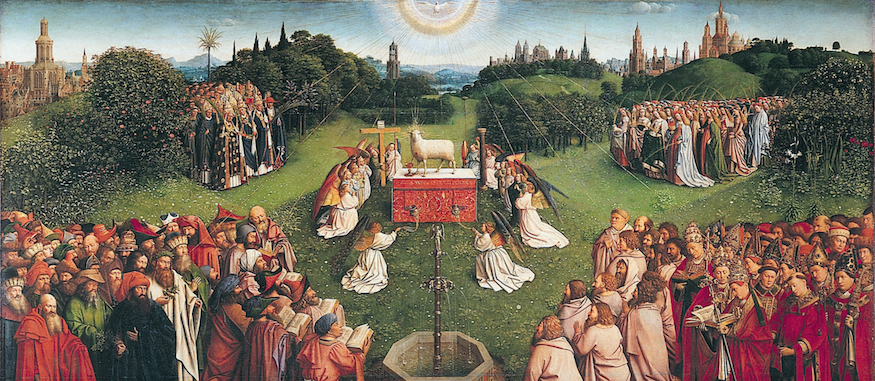The Sufferings of Israel and of the Messiah Jesus
As we approach Easter, we reflect on the suffering and death of Jesus. Scripture draws deep and poignant connections between the suffering of Jesus and the suffering of His people—Israel, the Jewish people.
Psalm 22 speaks elaborately about the suffering of King David, yet its words transcend his personal pain. They prophetically echo the collective suffering of the Jewish people and of the future Messiah. “My God, my God, why have You forsaken me?”, David cries (verse 1)—a verse Jesus Himself quoted on the cross centuries later. A few verses on, we read: “My God, I cry by day, but You do not answer; and by night, but I have no rest” (verse 2). These words capture the sorrow of the Jewish people through the ages—wandering through Eastern and Western Europe, expelled from the land of Israel and later from Spain and England, vilified and persecuted wherever they went. Eventually leading up to the Holocaust. Countless prayers were offered, yet it often seemed that God had forsaken them and had no place to rest. Both Jesus on the cross and the Jewish people throughout history have known a desolation that is like a mystery we can never precisely fathom.
Verse 8 of Psalm 22 says, “Commit yourself to the LORD; let Him deliver him.” The same was shouted by bystanders during Jesus’ crucifixion (Matthew 27:43). Tragically, similar words were often spoken by Christians to Jews during the Middle Ages and even during the Holocaust: “Repent to the Lord, let Him save you.”
“They divide my garments among them and for my clothing they cast lots,” says David in verse 18, a prophetic reference to the Roman soldiers who gambled for Jesus’ clothes. The last earthly possession Jesus had, the clothing on His body, was taken from Him and divided.
“How piercingly Psalm 22:18 connects the suffering of Jesus with the suffering of the Jewish people”
However, this verse also echoes the historical reality of the Jewish people. Time and again, in expulsions and pogroms, their possessions were seized and plundered. During World War II, Jewish homes, bank accounts, and valuables were systematically looted. After the founding of the State of Israel in 1948, more than 800,000 Jews were expelled from surrounding Arab countries, losing everything. Jews in Judea and Samaria (West Bank) were also killed or expelled by Jordan’s army, their homes and belongings stripped away. When their children returned after 1967, they were called ‘settlers’ and ‘occupiers.’ How piercingly Psalm 22:18 connects the suffering of Jesus with the suffering of the Jewish people.
The well-known chapter 53 of Isaiah speaks of the Suffering Servant. Here it clearly refers to the Messiah: “As He will bear their iniquities” (verse 11). But Isaiah also calls Israel the Lord’s Servant: “He said to Me, You are My servant, Israel, in Whom I will show My glory” (Isaiah 49:3). The title Servant of the Lord applies both to Israel and to Jesus, the Messiah and King of Israel.
As Christians we believe that Isaiah in chapter 53 refers prophetically to the Messiah, to Jesus, who suffered and died as the Son of God to take our sins on Himself, so that we may be reconciled with the God of Israel. Jews, on the other hand, believe this refers to the Jewish people themselves, who have borne immense injustice through the centuries. And they have a point here too. I believe Isaiah refers to both: to the Jewish people, and ultimately to the Messiah, the Saviour Himself: ‘He was despised and forsaken of men. A man of sorrows, acquainted with grief’ (verse 3). Jews have long been despised and forsaken. Today, Israel receives more condemnations at the UN than any other nation. Israel is despised among the nations.
He was “numbered with the transgressors” (verse 12). Jesus, though innocent, was condemned and scourged and crucified as a transgressor. On 7 October 2023, Israel was hit by a horrific pogrom, when 1,200 were murdered and hundreds taken hostage. A national trauma that continues throughout Israel’s society to this day. But on the world stage, Israel is seen as a ‘transgressor’ and antisemitism is skyrocketing around the globe.
Isaiah 53:6 declares, “But the LORD has caused the iniquity of us all to fall on Him.” This is a clear reference to the vicarious suffering of Jesus. Yet, one cannot help but also think of the Jewish people, who through the centuries have borne the burden of countless false accusations, violence, and hatred. In a sense, much of our iniquity has fallen upon the Jews and Israel.
Recognizing the profound connection between the suffering of Jesus and the suffering of Israel is essential, as the Bible connects them both. Jesus, the King of Israel, and Israel itself are inseparable.






